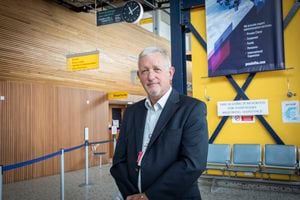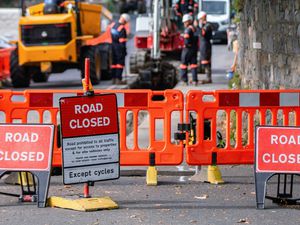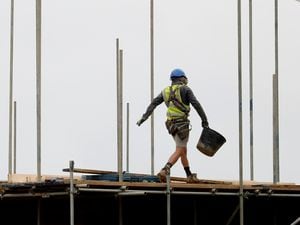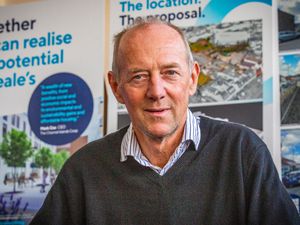Airport security to get full body scanner
A NEW full-body scanner due to be installed at Guernsey Airport is one of the measures being taken to help speed up the process of going through security.

As well as the scanner, which should be installed by the end of September, new X-ray machines are due to be brought in before the end of the year.
Head of aviation services Ash Nicholas said that every effort was being made to improve things.
‘Once all the new scanning equipment is in place we are confident travellers will see a significant improvement. In the meantime I can only apologise to anyone who has been affected, and we are grateful for everyone’s patience while all the changes happen.’
The hi-tech body scanner is similar to those used in other UK airports. ‘From the customer service perspective it’s a valuable piece of equipment to have,’ he said.
The scanner should reduce the need for body searches, which some people have found unnecessarily invasive, and as a result speed up the process of getting through security.
If a passenger sets off the alert while passing through the security arch, they will be invited to step into the body scanner, which can then identify just the area that needs closer attention, enabling a more targeted search.
Both lanes of security are currently open, he said, and while one has four points at which passengers can place trays on the conveyor, the other has three.
Mr Nicholas said that this allowed some people to take more time if necessary, while others can go through more quickly.
A total of £1.5m. is being invested by the airport in the new scanner and upgraded X-ray machine. The equipment will be installed during a quiet period at the airport or overnight to minimise disruption, he said.
While technology being brought in will help speed things up, Mr Nicholas added that additional staff being employed by security operators G4S will also improve matters. ‘Five new local recruits have recently completed their training, achieved security clearance, and are now assisting existing staff in the security search areas,’ he said, adding that additional trained staff are being brought in from Jersey and the UK to support the company during its recruitment drive.
More staff are due to be interviewed, and an improvement in pay for all staff from 1 July has helped generate more interest in the vacant posts.
n The full-body scanner uses low-power millimetre waves to detect potentially dangerous items carried on the body or in clothing. A scan takes 32 milliseconds. It is designed for privacy and, rather than taking photographs, it evaluates physical information, highlighting points of interest on a symbolic body graphic.
The transmitted power at the scanned person’s location is several orders of magnitude lower than a mobile phone’s emissions.
It is said to pose no health threat.





